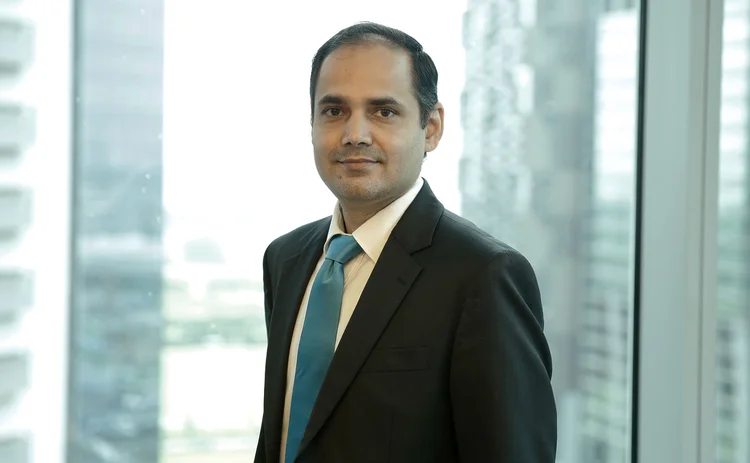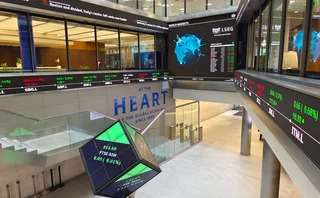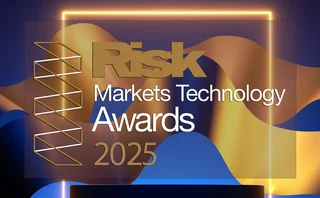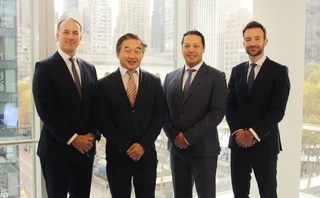
Deal of the year: Deutsche Bank
Asia Risk Awards 2020

Foreign investment is crucial for driving growth in the Asia-Pacific region’s many developing economies – especially in agricultural sectors – but such benefits often come at the cost of degradation to the local environment, which contributes to rising food and water insecurity and climate change.
A landmark derivatives trade executed in June this year by Deutsche Bank showed how banks can play a role in encouraging more sustainable growth across the region. The approach taken could provide a template for future environmental, social and corporate governance (ESG)-linked derivatives trades in Asia.
The trade was a one-year US dollar/Thai baht foreign exchange forward linked to environmental and social key performance indicators (KPIs). Deutsche Bank declines to disclose the size of the trade, saying that it is “commercially confidential”, but says that it is fairly unique in Asia.
Deutsche Bank’s counterparty for the trade, Singaporean food and agribusiness multinational Olam International, purchases and exports rice that has been farmed in Thailand.
The FX forward does two things for Olam International. First, the company’s purchases of rice from its farmers in Thailand are denominated in baht, but sales revenues are made in dollars – creating FX risk that the trade allows the company to hedge.
Second, the trade provides the company with a financial incentive to address the environmental and social impacts of rice farming, which, accounting for roughly 10% of all global man-made methane emissions, is a leading contributor to climate change. If the company is able to meet certain KPIs by the end of the trade, it will earn a discount on the hedge.
“This transaction establishes some important standards for sustainable rice farming in Apac [Asia-Pacific],” says Kamran Khan, head of ESG for the Apac region at Deutsche Bank in Singapore. “It will ensure that rice farmers can continue farming for years into the future because they will have sufficient water and the quality of their farm land will not deteriorate over time.”
This transaction establishes some important standards for sustainable rice farming in Apac. It will ensure that rice farmers can continue farming for years into the future
Kamran Khan, Deutsche Bank
The trade comes as part of a broader sustainability project by Deutsche Bank. The bank has set an ambitious target of €200 billion ($236.7 billion) in sustainable financing and ESG investments by 2025. Progress towards this target will be documented annually in the bank’s non-financial report.
There has been a growing market for ESG-linked derivatives over the past 12 months. The first ESG products for hedging FX and interest rates were, in fact, issued last year, by banks in Asia and Europe. In Europe, there is also a burgeoning market for structured notes based on ESG indexes.
However, the uniqueness of Deutsche Bank’s FX forward transaction with Olam is the KPIs selected to measure ESG performance, says Khan. It is the care with which the bank went about determining those targets, striking a balance appropriate for Olam, while ensuring that they would be verifiable.
“The quality of ESG financing is tied closely to the ESG impact downstream – on whether the promised results will materialise or not,” he says. “We are building an ESG business that pays close attention to the downstream.”
To that end, the bank hired a well-respected ESG consultant at the start of the year, and proceeded to work out the right KPIs in a three-way discussion with the consulting firm and the client.
The bank spent more than three months performing extensive due diligence on the client’s ESG strategy, and on how the client collects ESG-related data and associated processed involved. The details were then referenced and compared with established ESG standards within Olam’s industry, such as those from the Sustainable Rice Platform, the Sustainable Rice Landscapes Initiative, the International Rice Research Institute, and the Food and Agriculture Organization of the United Nations.
Even amid some very significant operational hurdles – largely due to Covid-19 in the first quarter of the year – the project was able to progress without any major hiccups.
“Despite the evolving pandemic situation at the time, we continued to conduct due diligence on the underlying issues facing the industry, and worked with the client to come up with an impactful and diverse set of KPIs, which were then linked to the hedge that the client wanted to put on,” says Rahul Jain, head of sustainable and special solutions for Asia.
The KPIs that were eventually put in place comprise 10 of the 17 sustainable development goals agreed by the United Nations General Assembly in 2015.
They include reducing environmental goals such as reducing greenhouse gas emissions, improving biodiversity, increasing the efficient use of nitrogen and phosphorus, but also, importantly, social objectives, such as increasing the level of rice farmers’ income.
According to the bank, these targets, if met, would increase income for new rice farmers in Thailand by 10%, improve nitrogen and phosphorus efficiency by 5% and 20% respectively, and bring about a 10% reduction in greenhouse gas emissions.
“In line with Deutsche Bank’s commitment to sustainability, we would like people to know that financial innovations can really help companies accelerate sustainable practices, and support the social, governance and environmental factors that are so critical for everyone’s future,” says Jain.
Only users who have a paid subscription or are part of a corporate subscription are able to print or copy content.
To access these options, along with all other subscription benefits, please contact info@risk.net or view our subscription options here: http://subscriptions.risk.net/subscribe
You are currently unable to print this content. Please contact info@risk.net to find out more.
You are currently unable to copy this content. Please contact info@risk.net to find out more.
Copyright Infopro Digital Limited. All rights reserved.
As outlined in our terms and conditions, https://www.infopro-digital.com/terms-and-conditions/subscriptions/ (point 2.4), printing is limited to a single copy.
If you would like to purchase additional rights please email info@risk.net
Copyright Infopro Digital Limited. All rights reserved.
You may share this content using our article tools. As outlined in our terms and conditions, https://www.infopro-digital.com/terms-and-conditions/subscriptions/ (clause 2.4), an Authorised User may only make one copy of the materials for their own personal use. You must also comply with the restrictions in clause 2.5.
If you would like to purchase additional rights please email info@risk.net
More on Awards
Clearing house of the year: LCH
Risk Awards 2025: LCH outshines rivals in its commitment to innovation and co-operation with clearing members
Best use of machine learning/AI: CompatibL
CompatibL’s groundbreaking use of LLMs for automated trade entry earned the Best use of machine learning/AI award at the 2025 Risk Markets Technology Awards, redefining speed and reliability in what-if analytics
Markets Technology Awards 2025 winners’ review
Vendors jockeying for position in this year’s MTAs, as banks and regulators take aim at counterparty blind spots
Equity derivatives house of the year: Bank of America
Risk Awards 2025: Bank gains plaudits – and profits – with enhanced product range, including new variants of short-vol structures and equity dispersion
Law firm of the year: Linklaters
Risk Awards 2025: Law firm’s work helped buttress markets for credit derivatives, clearing and digital assets
Derivatives house of the year: UBS
Risk Awards 2025: Mega-merger expected to add $1 billion to markets revenues, via 30 integration projects
Interest rate derivatives house of the year: JP Morgan
Risk Awards 2025: Steepener hedges and Spire novations helped clients navigate shifting rates regime
Currency derivatives house of the year: UBS
Risk Awards 2025: Access to wealth management client base helped Swiss bank to recycle volatility and provide accurate pricing for a range of FX structures







